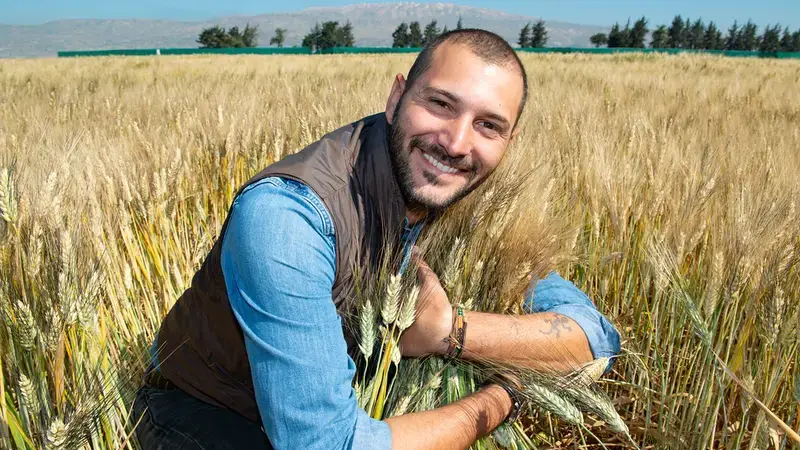AN OLD/NEW BUSINESS OPPORTUNITY FOR AFRICA: DURUM WHEAT

Durum wheat is an important food crop in the world and an endemic species of sub-Saharan Africa (SSA). A new publication (Durum Wheat: Origin, Cultivation and Potential Expansion in Sub-Saharan Africa - May 2019, 20 pages) convincingly demonstrates the potential of releasing durum wheat varieties adapted to all growing conditions of SSA, from the oases of the Sahara to the highlands of Ethiopia .
In the highlands of Ethiopia and the oases of the Sahara this crop has been cultivated for thousands of years. Today, smallholder farmers still grow it on marginal lands to assure production for their own consumption. However, durum wheat is no longer just a staple crop for food security but has become a major cash crop. In fact, the pasta, burghul and couscous industry currently purchase durum grain at prices 10 to 20% higher than that of bread wheat. Africa as a whole imports over €4 billion per year of durum grain to provide the raw material for its food industry. Hence, African farmers could obtain a substantial share of this large market by turning their production to this crop.
"A participatory approach, that uses the farmers themselves to guide the breeding decisions helps hugely in achieving success. A simple example was for an advanced line that I really liked: the yield was very high, the grains very big, and it had very good disease resistance. Still, when I showed it to farmers they did not like it. The main reason was that it was too short, and they could not get enough straw to feed their livestock. This is but an example on how incorporating farmers’ opinions save me from investing a lot of efforts in releasing and promoting a variety that would have never made it to cultivation".
Challenges and promises
New breeding technologies offer great promise for expanding the area of durum wheat production in SSA. However, this remains primarily dependent on the market ability to purchase these grains at a higher price to stimulate farmer adoption. Because of its industrial nature, durum wheat has often been disregarded by SSA policy makers in favor of bread wheat as a more direct “food security” approach. Considering that the most cultivated durum varieties are more than 30 years old, there is a significant genetic yield gap that could be filled through the release and commercialization of more modern varieties.
A significant effort has been made to expand the production of improved durum wheat cultivars to supply raw materials to the food industries. The pasta producers used to rely on massive importation of durum wheat grains, which was not a sustainable long-term business strategy due to high and volatile costs. Further, the purchase of foreign grains competed with other national priorities for the use of governmental hard currency stocks.
Meeting the industrial standards
Recent investments in the pasta industry are proving extremely promising in Ethiopia thanks to new food habits of the growing urban populations, which are looking for fast and tasty foods, while still cheap and nutritious. The Ethiopian Millers Association has eagerly explored the possibility to procure the needed raw material directly from local farmers to reduce production costs and increase competitiveness against foreign pasta imports. Unfortunately, the local production did not guarantee sufficient rheological grain quality to satisfy the industrial needs. In fact, grain of tetraploid landraces does not meet industrial standards in terms of color or protein quality.
Hence, specific incentives needed to be provided to farmers to obtain industrial-grade harvests. The scope of the Ethiopian-Italian cooperation project for the Agricultural Value Chain in Oromia (AVCPO) was to re-direct some of the already existing bread wheat production system of the Bale zone toward the more lucrative farming of durum wheat for the industry.
The process acted on the key elements required by the pasta industry to stabilize and self-sustain the value chain: (a) competitive price, (b) high rheological quality for conversion into pasta, (c) easy and timely delivery, (d) consistent stock of grains and predictable increases over years.
For more information, please contact ICARDA’s [email protected]
